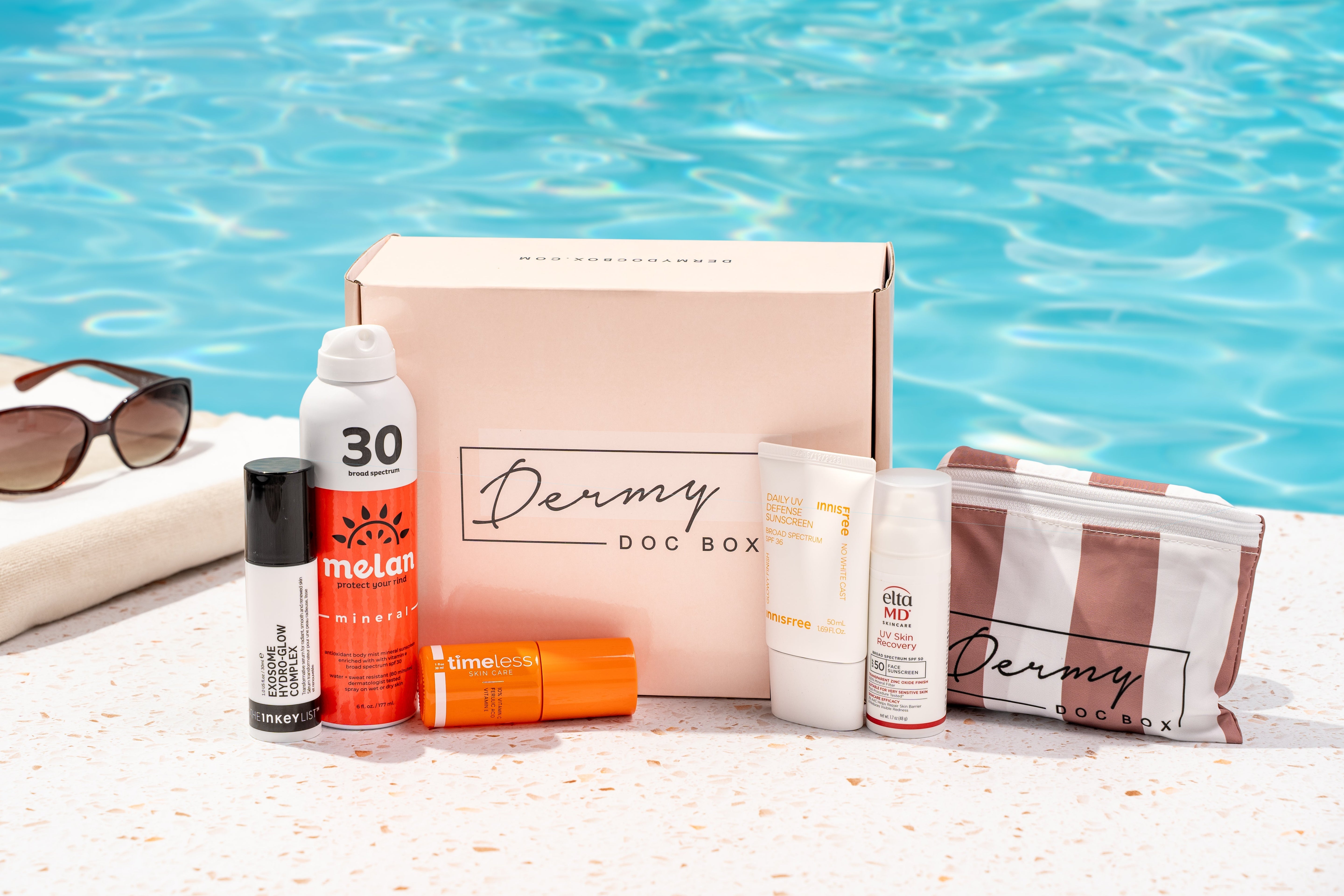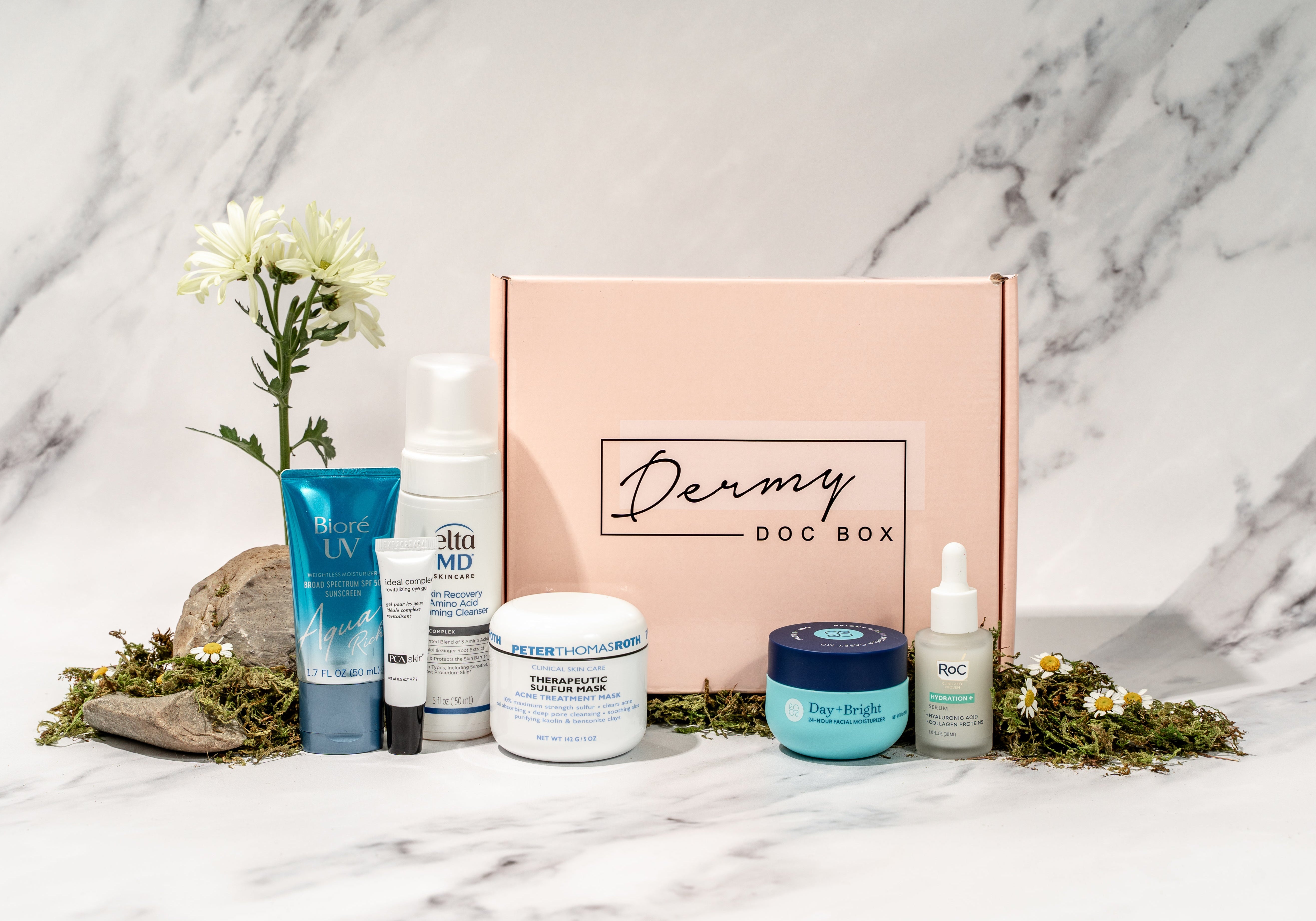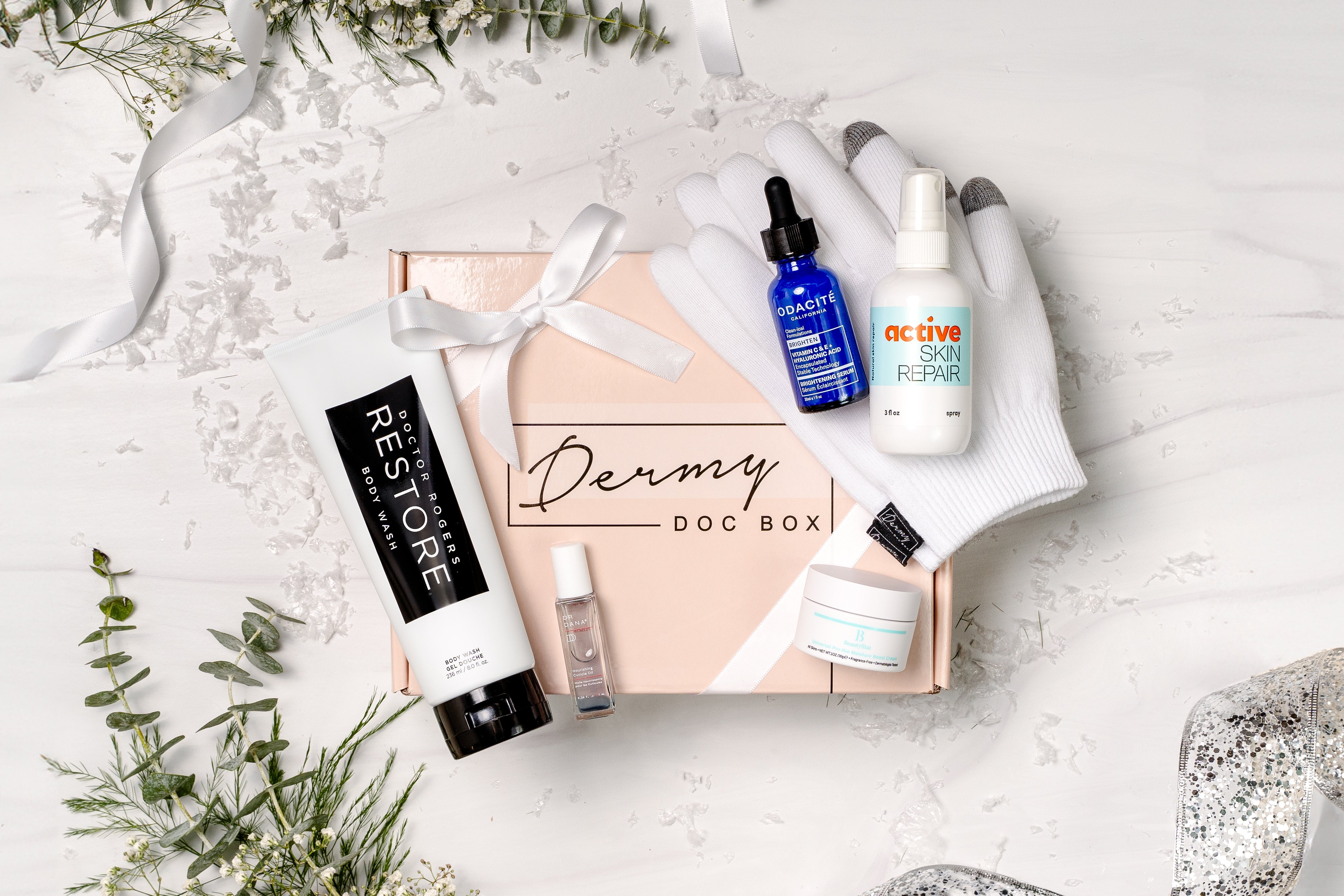Pregnancy is stressful enough, but as a dermatologist and mom, I know all about the struggles of finding pregnancy-safe skincare. There is a ton of confusing and contradictory information on the internet, let me simplify this process for you!
What are some skin changes to expect in pregnancy?
The pregnancy “glow” is actually a physiological process! During pregnancy, we have an increase in our blood volume and an increase in oil production. For some women, this results in a nice shiny pregnancy glow, and for others, it sets off acne and worsening skin conditions.
We can also get an upregulation of melanin, which gives our skin color. Some women notice just a slight darkening of their areolas/nipples or folds of the skin, others also notice “melasma” on their face. Melasma is nicknamed the “mask of pregnancy”, where you can see an increase in hyperpigmentation or dark spots, causing an uneven skin tone.
Lastly, as we are gaining weight, some of us, including myself, may start to notice stretch marks! The deep layer of the skin which contains collagen and elastin is pulled apart and this is what causes the dreaded tiger stripes on the abdomen, breasts, thighs, etc.
What products should you avoid in pregnancy:
So I’ll start by saying that the internet is the wild west when it comes to advice. Always remember to take everything you hear, including from me, with a grain of salt. If you have concerns over a specific product, you can always check with your doctor.
In general, I tell my patients that there is no need to throw out all your skincare and start new in pregnancy, but there are some key things to keep in mind.
The first and most important step is to review your current prescription medications if you are using prescribed creams or pills from your dermatologist to manage things like your acne. For example, oral medications like certain oral antibiotics, isotretinoin and spironolactone, which we prescribe for management of acne should be stopped in pregnancy.
Oral isotretinon (aka “Accutane”) is a vitamin A derivative that can be very helpful for treating acne. It has a topical prescription version: tretinoin or retin-A and an over the counter version: retinol. Because we have evidence to show that oral isotretinoin can lead to fetal birth defects, out of an abundance of caution, we recommend patients stop using topical tretinon or retinol during pregnancy. If you think about it, the amount likely absorbed through the skin is minimal, but this is one where we just want to avoid any risk at all, so it’s best to avoid it.
So to reiterate, if you are using an over the counter retinol product, often marketed for reducing fine lines or wrinkles, I would recommend avoiding this product during pregnancy.
I personally resumed the use of my retinol after both children were born while I was actively breastfeeding for the year. This may be more of a personal preference but because I know the literature is regarding birth defects, after birth use is likely fine.
Ok, now that the retinol conversation is over, other things you may consider avoiding include the following:
- bleaching creams containing the ingredient “hydroquinone”
- chemical sunscreens (oxybenzone/avobenzone, etc). Please note, there are no studies to say this would be harmful to a baby, but some women prefer to avoid them and stick to mineral or physical sunscreens (containing only zinc oxide and titanium dioxide)
- High percentages of salicylic acid is another controversial ingredient. Salicylic acid is found in some over the counter washes or acne products. In general, it is found in a 2% concentration, which is deemed safe. Higher percentages can be found in chemical peels so always make sure to disclose your pregnancy if having any sort of facial treatments done. Salicylic acid is technically a cousin of aspirin and high doses can cause salicylism--a toxic syndrome caused by excessive intake of salicylic acid which can lead to serious symptoms for the person who is pregnant, including tinnitus, nausea, dizziness, etc. We now also have OBGYNS prescribing aspirin to pregnant patients for certain conditions SAFELY, so the risk is likely minimal with a topical product. That being said, most dermatologists will agree that over the counter 2% salicylic acid, especially in the form of a cleanser, is likely fine to use!
What are some tried and true pregnancy safe recommended ingredients?
#1 Vitamin C serum - Great for adding to your pregnancy glow

Using Vitamin C serum in your morning routine throughout pregnancy can help both with anti aging and brightening the skin. Vitamin C also boosts the ability of your sunscreen to protect your skin against free radicals in the environment that can contribute to hyperpigmentation!
#2 Azelaic Acid- Acne-fighting anti-bacterial and naturally brightening

This is one of my favorite prescription and over the counter ingredients in pregnancy. It has natural antibacterial effects on the skin so it can be helpful for conditions in pregnancy like acne and rosacea. It also effectively blocks melanin synthesis, so it’s a great pregnancy safe option for treating or preventing melasma and hyperpigmentation.
#3 Lactic & Glycolic Acid - Helps with roughness by smoothing the skin

These acids are “alpha hydroxy acids” and are safe to use in pregnancy. They are great options for both exfoliation, brightening and hydration to the skin.
#4 Benzoyl Peroxide - Helps decrease acne-causing bacteria on the skin

One of our OG treatments for acne is a great option during pregnancy for those with more oily or acne prone skin. Find it in over the counter acne face washes for keeping your pregnancy breakouts at bay.
#5 Hyaluronic Acid - Quenches hydration deep in the skin

Hyaluronic acid is considered a “humectant”, so it works by hydrating and maintaining the plumpness of the skin. You can find it in serums and moisturizers. It can be especially helpful for pregnant patients suffering from dryness!
#6 Bakuchiol - Brightening and anti-aging

Bakuchiol is a natural plant extract that has similar properties to retinol. There are some small studies to show that it can stimulate collagen production and improve skin cell turnover, so this is a great retinol alternative during pregnancy!
XOXO,







